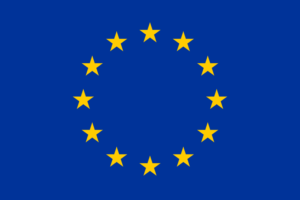 This sign-on letter is being circulated by the Communia Association. Click here to sign by February 6.
This sign-on letter is being circulated by the Communia Association. Click here to sign by February 6.
Quality and inclusive education is the cornerstone of securing Europe’s future. We, advocates of quality education in Europe, are contacting you because we are concerned thatthe language of the new education exception proposed in the directive on Copyright in the Digital Single Market will alienate institutions, organisations and individuals that provide non-formal or formal education across Europe.
We believe that educators should be provided with the autonomy necessary for them to give the best possible learning opportunities for students, and that students and other learners should have the freedom required for effective independent learning. The choice of resources that an educator uses should only be dependent on the need they see in their students.
The current educational exceptions to copyright in Europe are fragmented and not sufficient to support modern education in the digital age. The different implementations of the Information Society Directive (2001) exception for education and scientific research have made the use and exchange of digital and non-digital materials, as well as educational collaboration across the EU, difficult. The complexities of copyright law make it unclear what educators and learners can do with materials, which has a negative impact on the quality of education, limiting both educational collaboration and access to inclusive, fair education for all.
We acknowledge and strongly support the European Commission’s decision to update the framework of educational exceptions with a mandatory exception. This promises to enable educators and students to make use of technological innovations, including digital resources in their classrooms, as well as improving the possibilities of cross-border collaboration.
However, we note several unfortunate gaps in the proposed exception. We believe that without addressing these we will not have a copyright fit for modern, quality, and inclusive education.
- First, the European Commission’s efforts to harmonise digital education at the EU level will be of little consequence if member states can ultimately decide to subject the application of the exception to the availability of ‘adequate’ licenses. The proposal does not clarify whether this covers important factors like if the license has a reasonable price, respects other exceptions and limitations, or even provides fair remuneration to the original author. The mere theoretical availability of a license is not enough for it to be workable in an education setting. The failure of the “Licenses for Europe” stakeholder dialogue, where non-legislative solutions for copyright problems were unsuccessfully discussed, suggests that licensing is not a solution that can replace legislative change. In particular, it cannot fulfil the role of a modernised set of exceptions which offers legal certainty for teachers and students across Europe. Many educational institutions will be ill-placed to negotiate license contracts (if they have the option at all), while others will not even be able to consider purchasing a license, due to the costs involved. We therefore recommend that the reference to licenses is removed from the exception.
- Second, we are worried that the proposed new exception only applies to ‘educational establishments.’ Education is understood today as a lifelong process that is conducted by a multitude of institutions, formally and informally, and includes learners themselves. This was noted in the Commission Communication ”Making a European Area of Lifelong Learning a Reality” and the subsequent Council Resolution of 27 June 2002 on lifelong learning. Yet when defining copyright law, the European Commission fails to embrace its own lifelong learning approach by limiting the potential beneficiaries of the proposed exception to ‘educational establishments’. In doing so, the proposed exception will not lead to harmonisation of digital uses for the purposes of informal education, such as offered by museums, libraries, archives, professional associations, independent learning, and civil society organisations. Examples include education about the dangers of drugs that civil society organisations provide for teenagers, or the great educational programs offered by libraries that help Europeans embrace their local culture. This limitation would also exclude employees, apprenticeships, and practical learning as a part of vocational education at their company, which is a key part of Europe’s lifelong learning goal. We therefore propose that the beneficiaries of the exception will be broadened to include all persons and entities providing an educational activity.
- Third, we note that education does not rely solely on digital uses, and the problems and legal uncertainty that the education community faces goes beyond the digital and online environments. The European Commission’s proposal creates an artificial division between digital and analogue uses, adding unwanted complexity to a legal framework that is already difficult to grasp. By adding a mandatory exception for digital uses without making changes to the existing exception for non-digital ones – such as distributing texts or images to students, performing a play, or screening a film in class – the Commission’s proposal creates confusion instead of clarification. We therefore recommend that the Commission removes this artificial barrier between digital resources and printed paper for educational purposes to enable much needed clarity for educators and learners on all acts and materials needed for education.
We ask you to consider proposing amendments to this exception in line with our recommendations above. We have a once in a generation opportunity to reform copyright for education in a meaningful way. We ask you to join us in advocating for giving everyone involved in delivering the objectives of Education and Training the framework they need. This means crafting an exception that will give educators the freedom to teach and learners the resources they need, and support quality and inclusive education for the current and next generations of European citizens.
For more information, examples of educators who are affected, and to learn more about our concerns, please contact Lisette Kalshoven (lk@kl.nl).
Sincerely,




